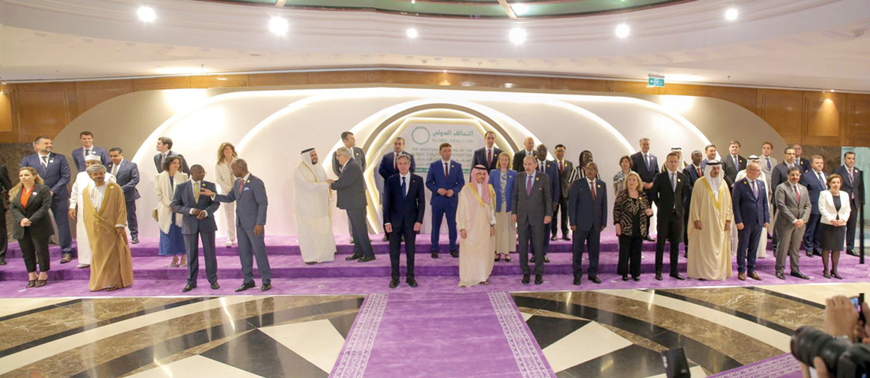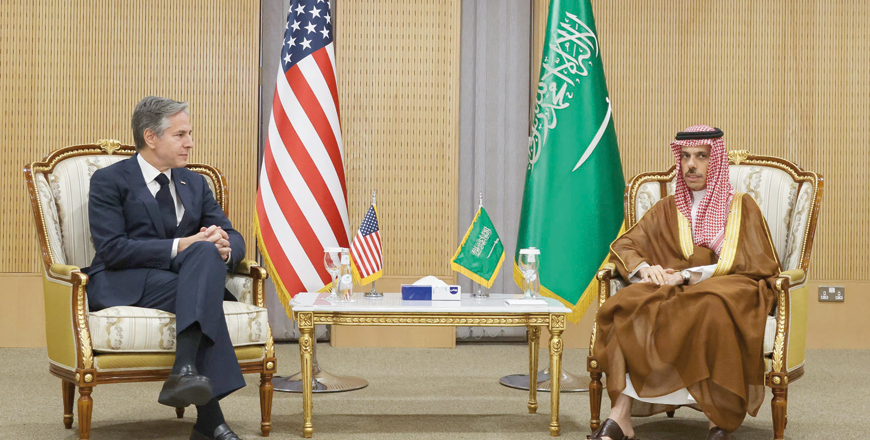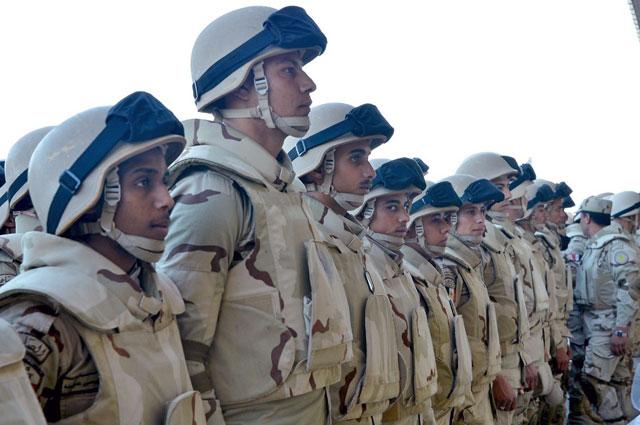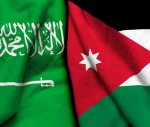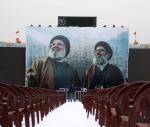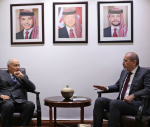You are here
US, S.Arabia urge repatriation of Daesh extremists, funds for Iraq, Syria
By AFP - Jun 08,2023 - Last updated at Jun 08,2023
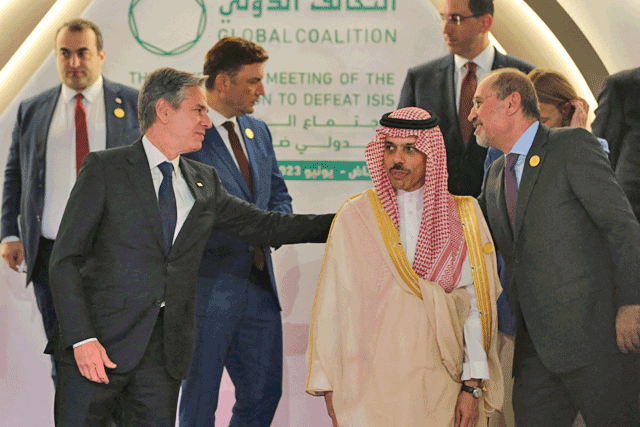
Saudi Foreign Minister Prince Faisal Bin Farhan (centre), Jordanian Foreign Minister Ayman Safadi (right) and the US Secretary of State Antony Blinken attend the Ministerial meeting for the Global Coalition to Defeat Daesh, on the sidelines of a family photo session, at the Intercontinental Hotel in Riyadh, Saudi Arabia, on Thursday (AFP photo)
RIYADH — The United States pledged $148 million on Thursday for stabilisation efforts in Iraq and Syria as it joined Saudi Arabia in urging Western states to repatriate foreign Daesh group fighters and their relatives.
The announcement was made at a ministerial meeting of the international coalition against Daesh in Riyadh, which was co-hosted by Saudi Arabia and the United States with the aim of raising $601 million for a stabilisation fund.
“I’m announcing that the United States is committing $148.7 million to that fund,” said US Secretary of State Antony Blinken, who kicked-off a three-day visit to Saudi Arabia on Tuesday.
“This support will meet critical needs that Syrians and Iraqis themselves have identified.”
Saudi Foreign Minister Prince Faisal Bin Farhan said it was “disheartening and absolutely unacceptable” that some wealthy countries had not repatriated citizens who had travelled to Iraq and Syria to join Daesh.
“To those countries, you must step up, you must take your responsibility,” said the top diplomat who held separate talks with French Foreign Minister Catherine Colonna on the sidelines of the coalition meeting.
Colonna is expected in Doha later Thursday for a strategic dialogue session.
The “caliphate”, which Daesh proclaimed across swathes of Iraq and Syria in 2014, was declared defeated in 2019 following counteroffensives in both Iraq and Syria.
Thousands of terrorists and their family members continue to be held in detention centres and informal camps where US commanders have warned they could fuel a Daesh revival.
‘Take up arms’
Despite repeated calls for their repatriation, foreign governments have allowed only a trickle to return home, fearing security threats and domestic political backlash.
Blinken applauded countries that have brought home their nationals from Syria, urging other nations to follow suit.
“Repatriation is critical” to reduce populations of large informal camps such as Syria’s Al Hol, which houses 10,000 foreigners, including Daesh relatives, he said.
“Failure to repatriate foreign terrorist fighters risks the possibility that they could again take up arms and attempt to restore” the Daesh proto-state, he added.
The anti-Daesh coalition was formed in 2014 following the extremists’ lightning advance that saw reports of atrocities multiply as they overran non-Muslim as well as Muslim areas.
Despite its territorial defeat, Daesh militants continue to conduct attacks against civilians and security forces in both Iraq and Syria.
The United Nations estimates that Daesh still has 5,000 to 7,000 loyalists across the two countries, roughly half of whom are fighters.
Fellow coalition member Britain will pledge more than $109 million over the next five years to support stabilisation efforts in Iraq and Kurdish-controlled northeastern Syria, its foreign ministry said.
This comes on top of $19.9 million in aid over the next two years to specifically address acute humanitarian needs in north-eastern Syria, it added.
US partnership
Thursday’s coalition meeting came a day after Blinken told diplomats from Gulf Cooperation Council countries that the US remains “deeply invested” in Gulf partnerships.
The US secretary of state flew into Saudi Arabia on Tuesday, kickstarting a visit aimed at boosting ties with its longtime ally, which has begun forging closer relations with Washington’s rivals.
Relations with Riyadh have been strained in recent times, mainly over human rights and oil, after US pleas for help in bringing down skyrocketing prices last year were dismissed.
The three-day visit is Blinken’s first since the kingdom restored diplomatic ties with Iran, which the West considers a pariah over its contested nuclear activities and involvement in regional conflicts.
On Tuesday, the day Blinken arrived, Iran reopened its embassy in Riyadh after a seven-year closure, with Iranian Deputy Foreign Minister Alireza Bigdeli hailing a “new era” in ties.
On the same day, the kingdom’s de facto ruler, Crown Prince Mohammed Bin Salman, hosted Venezuelan President Nicolas Maduro, the head of a fellow oil power which has long sparred with Washington.
On Wednesday, a day after meeting Blinken, Prince Mohammed received a phone call from Russian President Vladimir Putin.
“Particular attention was paid to measures aimed at strengthening trade and economic ties,” according to a statement released by Russian state media.
“Preserving the stability of the global energy market was discussed extensively.”
Related Articles
AMMAN — Jordan will remain an effective partner in the Global Coalition to Defeat Daesh, which represents a successful implementation of col
RIYADH — The United States remains committed to its Gulf Arab partners, US Secretary of State Antony Blinken told Gulf diplomats in Saudi Ar
RIYADH — Saudi forces participating in any US-led ground operation in Syria would focus on fighting the Daesh terror group not the Damascus


